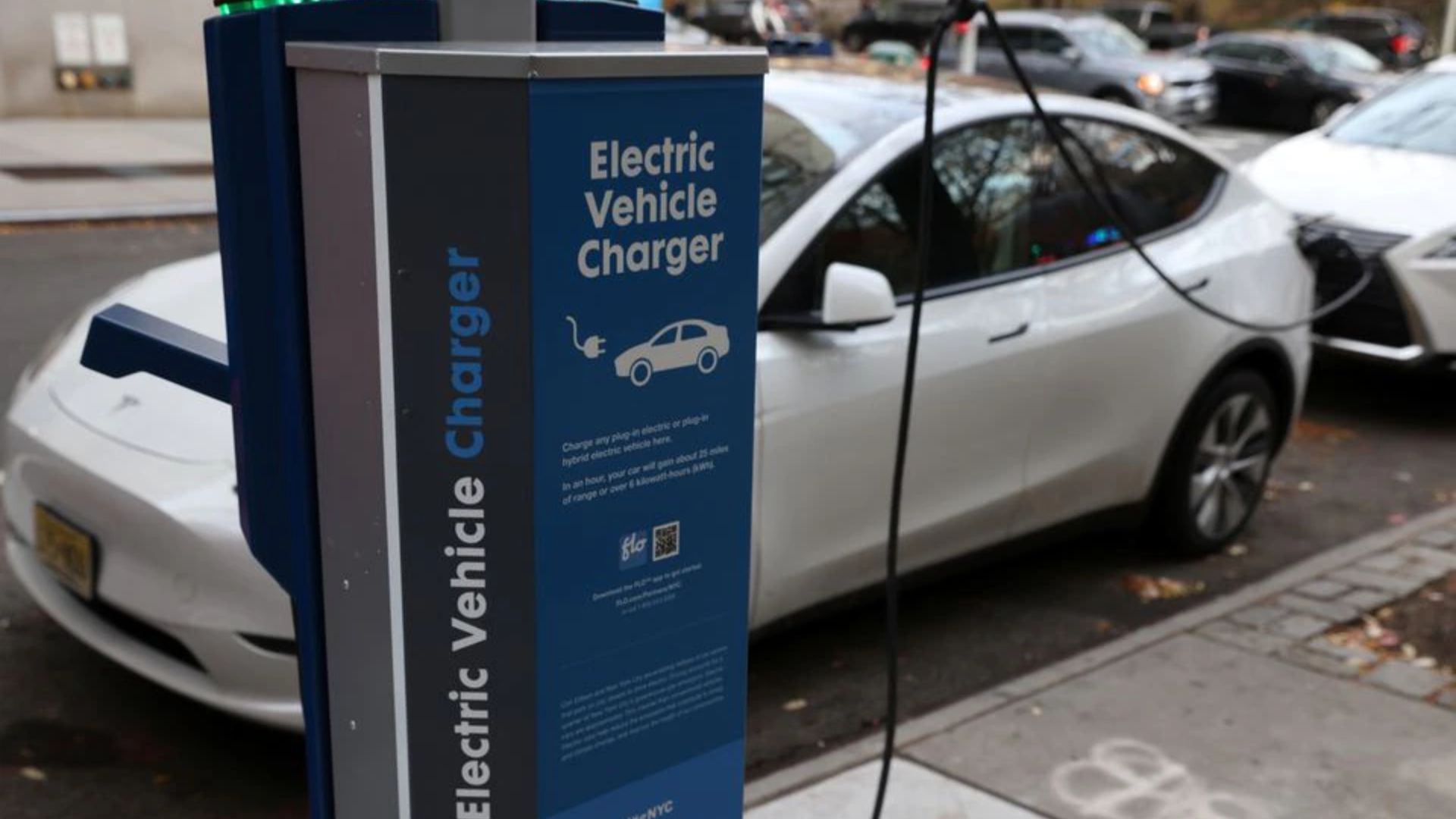WASHINGTON, (Reuters) – The Biden administration on Wednesday slashed its target for U.S. electric vehicle adoption from 67% by 2032 to as little as 35% after industry and autoworker backlash in the political battleground state of Michigan.
The Environmental Protection Agency instead adopted a “technology neutral” regulatory scheme that allows automakers far more freedom to meet emissions standards with gas-electric hybrids, which many environmentalists have opposed as a half-measure that delays the EV transition. The agency also embraced “advanced gasoline” technologies to save fuel, such as turbo-charging, lighter vehicles or stop-start ignition systems.
EPA administrator Michael Regan told reporters the new rules would nonetheless achieve the same greenhouse-gas reductions as the original EPA proposal for a far more aggressive EV transition.
“Let me be clear, our final rule delivers the same, if not more pollution reduction,” he said. “We designed the standards to be technology neutral and performance-based to give manufacturers the flexibility to choose which combination of pollution control technologies are best suited for their consumers.”
Regan emphasized there is “absolutely no mandate” to adopt electric vehicles.
The EPA acknowledged the rule cuts emissions by 49% by 2032 over 2026 levels compared with 56% under the proposal last year. Regan said in an interview the reductions were “essentially the same” between the proposal and final rule.
The EPA’s revised proposal reflects the political squeeze Biden faces in his re-election campaign. For both Biden and his Republican rival, Donald Trump, the road to the White House goes through Michigan and other industrial states such as Wisconsin and Pennsylvania where workers fear that the EV transition threatens jobs. Trump has repeatedly excoriated EVs.
The emissions rules likely mark the last major environmental policy move Biden will make before he faces the voters in November.
BIG POLLUTION REDUCTIONS
The new rules, while softened, will nonetheless force dramatic emissions reductions. The EPA said the plan cuts fleetwide tailpipe emissions by 50% over 2026 levels and reduces greenhouse-gas emissions by 7.2 billion tons through 2055.
The EPA’s percentage targets for EV adoption are not mandates but forecasts of how automakers will change their fleets to meet regulations. Its projection on Wednesday came as a wide range — between 35% and 56% of all sales between 2030 and 2032 — rather than a specific target, reflecting the flexibility it emphasized for automakers to pursue different pollution-cutting technologies.
The new regulations will be easier, but hardly easy, for automakers to meet given the relatively low levels of U.S. EV and hybrid adoption now. EVs last year accounted for less than 8% of vehicle sales. Hybrids, including plug-ins, accounted for about 9% of sales, according to Cox Automotive data.
Hybrid sales, however, have surged in recent months as EV demand slowed, suggesting the new regulations could set off a hybrid boom.
Environmentalists and electric-vehicle makers such as Tesla have often blasted hybrids as a side-road on the way to an urgently needed transition to fully electric vehicles.
Tesla executive Martin Viecha repeated that mantra on Wednesday, posting on the X social media platform: “Unfortunately, people use plug-in hybrids mainly as gas cars, which means their CO2 emissions are far worse” than the EPA suggests. And yet Tesla policy executive Rohan Patel acknowledged the practicality of the new standards in another post, calling them “less ambitious and therefore even more achievable.”
Some climate activists had a harsher take.
“This rule could’ve been the biggest single step of any nation on climate, but the EPA caved to pressure from Big Auto, Big Oil and car dealers and riddled the plan with loopholes big enough to drive a Ford F150 through,” said Dan Becker, director of the Center for Biological Diversity.
WIN FOR DETROIT
The United Auto Workers, which has endorsed Biden’s re-election campaign, cheered the more flexible regulations. Its workers worry that EVs will cost auto jobs, which are often less plentiful and lower-paying in EV plants.
“By taking seriously the concerns of workers and communities, the EPA has come a long way to create a more feasible emissions rule that protects workers” building vehicles with internal-combustion engines, the union said, while also promoting “the full range of automotive technologies to reduce emissions.”
The EPA rule goes easier on the Detroit Three’s highly-profitable heavy duty pickup truck franchises than on passenger cars or lighter trucks. By 2032, vehicles such as Ford’s Super Duty pickups will be required to cut their CO2 emissions by 46%. But they will still be allowed to emit more than three times as much as CO2 than a light-duty pickup such as the Ford F-150 or Chevrolet Silverado 1500, and nearly four times as much CO2 as a passenger car, according to an EPA statement.
Automakers won separate relief on Tuesday when the Energy Department softened and opted to phase in new rules that will reduce the mileage rating of EVs. That will help the Detroit Three avoid billions of dollars in fines for not meeting fuel efficiency standards through 2032.
Shares in General Motors, Ford and Stellantis rose on Wednesday, with Ford up the most, up 3.5 % in afternoon trading. Investors and analysts have been urging the Detroit automakers to slow investments in money-losing electric vehicles. The Biden administration rules give them more leeway to do that.
The change in the final rules reflects lobbying by the UAW, automakers and car dealers.
The Alliance for Automotive Innovation, a trade group representing nearly all automakers except Tesla, said the new rules prioritize “more reasonable electrification targets in the next few (very critical) years of the EV transition.”
Reporting by David Shepardson in Washington and Joseph White in Detroit, editing by Ben Klayman, Nick Zieminski and Brian Thevenot











